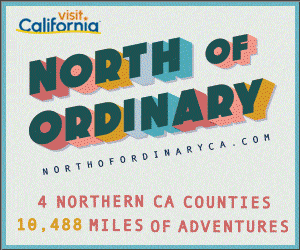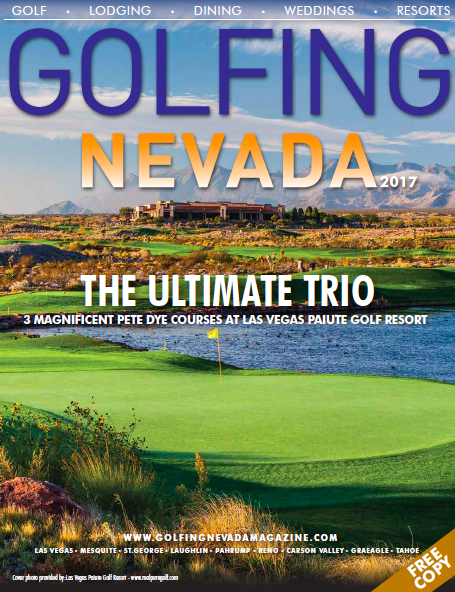Craig Faulkner – Producer/Host of American Rhythm
Story/Photos by: Lee Juillerat
For many people it’s a Saturday evening ritual. If they’re staying home, at six o’clock they turn on the radio and tune to the Rhythm and News Service of Jefferson Public Radio. Why? Because it’s time for American Rhythm – The Gourmet Oldies Show.
Some of the songs are familiar, some are indeed “moldy oldies.” Many are songs that listeners like me have never heard before. That’s where Craig Faulkner, age 76, the program’s producer and host comes in, revealing insights about the song, its artist and songwriter, the year it was recorded and other pertinent and fascinating trivia.
“Many of us like hearing the old songs,” says Faulkner. “They are part of our history. They are the stories we have told ourselves which helped shape our individual personalities and the collective cultural mind. I think understanding and appreciating all of that is the main reason folks listen to my program.”
People have been listening to American Rhythm since February 1, 1997, when the show debuted. A few months previous, Faulkner was introduced by a mutual friend to Colleen Pyke, who worked at JPR. She invited him to visit the station where he met John Baxter who was then program director. Casual conversation amongst the three of them included mention of Faulkner’s old music collection. Baxter told him the station was looking to add a program featuring vintage music, noted that he had “a good radio voice,” and asked if he might have any interest in producing and hosting such a show. A demo tape was recorded, John Baxter approved, and that’s how it began.
It is a good radio voice, one that’s casual, friendly and worth listening to. His conversational style is laced with interesting tidbits about the artists and their backstories. He provides little known minutiae about the songs, their lyrics, and other factors that contributed to the content and flavor of the music. Speaking in an easy matter-of-fact manner, he reveals forgotten or, more often, previously unknown factoids, information that enriches a listener’s knowledge and enjoyment. As he expresses an appreciation of the musicians, the singer or singers, he also adds the nuanced, sometimes subtle—sometimes not—hidden messages of how and why the song was created.
“I do my homework and try to provide some context when I play a song, though what primarily motivates me to produce these programs is that it brings a few small moments of happiness into the lives of a great many people.”
Hosting a vintage music program isn’t something that was part of Faulkner’s plans earlier in his life. When he moved to Southern Oregon in 1990, he designed and built custom homes and, three nights a week taught swing dancing classes, specializing in the Lindy Hop or Jitterbug, a dance style with roots in Harlem that was initially popular during the 1930s and early ‘40s. “I persevered and actually became fairly good at it,” he says of his dance skills. “After all, and unlike some forms of pedagogy, if you can’t dance The Lindy you certainly can’t teach it.”
Though appearing fit and trim for his years, he has stepped away from the social dancing scene in Southern Oregon. “It’s time for a new generation to keep The Lindy alive, but I’ll still play some of the old songs on the radio that helped to give it life.”
The music of The Swing Era is but one component of his extensive music collection. Consisting of old vinyl records, cd’s and you-tube downloads, it’s an eclectic mix of popular songs, big band swing, classic blues, country, jazz, rhythm and blues, hillbilly, honky-tonk, rock ‘n’ roll and much more, some of it dating to the dawn of recorded music in the late 19th and early 20th centuries.
The songs he plays often relate to an overarching program theme. Sometimes they’re versions of traditional holiday favorites or about obvious things like food or cars. Other times the common thread is more subtle, such as a form of thought or emotion that has been expressed in song through the years in various musical styles. He also frequently plays the original version of an old standard and follows that with subsequent renderings, all of them grouped throughout the program with other songs according to various sub-themes, such as chronologies. Some focus on an individual artist or group, a lyrical commonality, or the year in which they were all recorded. These are often presented in the form of trivia tests. “It’s oldies radio meets Jeopardy!” as he jocularly puts it. “Listeners invariably learn a lot about the history of American music.”
When I asked how he comes up with ideas for his never-the-same programs, Faulkner shrugged his shoulders. “It could be any number of ordinary things. It might be as simple as one song reminding me of another and then another, perhaps a request from a listener, or a random observation, even a casual remark in conversation. My wife says that just about everything seems to remind me of either a story, a joke, or a song.
“I readily perceive patterns and have a metaphorical and occasionally overactive turn of mind,” he adds with a laugh, “and the program ideas and themes occur spontaneously. Then I have to assemble the appropriate songs, make a coherent plan and record the show, and that takes time, thought and effort.”
Producing and hosting American Rhythm – The Gourmet Oldies Show, something he has always done pro bono, also reflects his personal roots and values. Born in San Francisco, he grew up in the town of Ross in Northern California’s Marin County and listened avidly to music on the radio from an early age.
Following high school he initially intended to pursue an academic career, “but gradually came to the then somewhat ambivalent and difficult recognition that I really did not want to go down that road.” The detour Faulkner took included retaining his love for the old songs and eventually codifying his knowledge and affection into the two-hour radio programs many of us listen to and enjoy. He records them at his home in the hills of the Applegate Valley, a process that, depending on the program, can take several hours or many days. He then hand delivers them to the JPR studios in Ashland.
On Saturday nights when the show is on, Faulkner “only very, very rarely” listens because, he explains, “It’s still fresh. I know what I played and what I said. The initial narcissistic novelty of hearing my voice on the radio got washed away many years ago.”
He says his program, and his thoughts and musical preferences, have evolved and widened. “The songs I play on the radio are no longer only big band boogie-woogie, rhythm ‘n’ blues, funky old soul, and the roots of rock ‘n’ roll, as I characterized the program in its early days. That designation encompasses a lot of really good music that I grew up listening to and very much enjoy, but I’ve also come to recognize that my knowledge base has grown rather considerably over the years. Being on the radio two hours every week, evidently with thousands of people listening, has thus brought a gradually growing sense of responsibility to convey a wider perspective on our musical history.
“Part of this, is recognizing that I should not restrict myself to merely being the purveyor of what I personally like. I’ve also come to regard my role in radio as that of a documentarian who strives for historical authenticity. Nevertheless, proprietary and aesthetic guidelines, along with the ever-shifting icons, taboos and verbal mannerisms of a heterogeneous culture preclude and constrain this to some degree. To take one extreme example, I could play a number of old and very risqué blues songs that would have me pulled off the air ‘in a New York second’ and garner JPR the wrath of the FCC. Though some folks might find it amusing, this is something I will simply not do. On the other end of the spectrum, so to speak, were I to play Beethoven’s Hammerklavier or the Gregorian chants I also like, well—there goes my listening audience. So, I stick with popular music in the American vernacular, strive to be entertaining, informative, and at my wife’s encouragement, perhaps occasionally insightful.”
Faulkner says his Gourmet Oldies program has influenced, and changed, his appreciation for different styles of music. “One of the things I’ve noted about musical tastes is that a great many people retain a nostalgic and somewhat exclusive affinity for certain styles and eras. Particularly for those who are no longer young, this affinity is understandably and often for the songs and artists that were a significant factor in the early shaping of their own individual personalities. One of the precipitates of this is an inability to appreciate, and a measure of disinterest, sometimes even disdain for somewhat unfamiliar and antiquated forms of musical expression that don’t reinforce ones emotional and aesthetic, even ideological insularity. Having observed this in others, and in myself, one of my responses has been an effort to, as I said, broaden my aesthetic sensibilities and historical perspective. I also find it interesting and informative to examine the songs I grew up listening to and the ways in which I’ve been conditioned by them, so there’s an introspective process very much in play also.”
Craig Faulkner does have a good radio voice and he continues to learn more about vintage American music, musicians, singers, and songwriters, and then share that knowledge with his listeners. The songs, whether long-time favorites, versions of moldy oldies, or never-heard-before obscurities, are what really make stay-at-home Saturday nights special.













